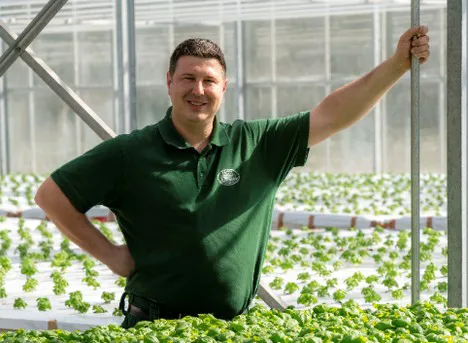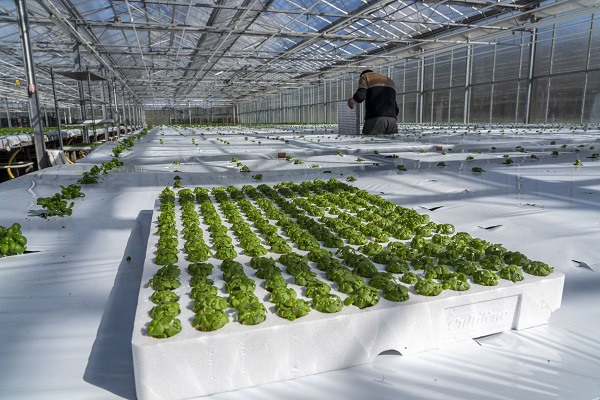[ad_1]
The cold and wet weather led to a much later start of the herb season at Johannes Adams’ business in Düsseldorf. “The heat during the summer was also rather suboptimal for the herbs. But we can be glad that we were not affected by further flooding or longer periods of heat,” says Adams. “Next year, we will take over another tenanted farm with two hectares of foil tunnels. In sheltered cultivation, the rainy periods are easier to handle. However, there are pros and cons to all production options, whether it’s outdoor production under glass or under film.”
Apart from the usual popular herbs such as parsley, chives, dill, and mint, he could not identify any other “big sellers” this year. Through partner companies, Adams also receives goods from Kenya, France, and Italy, among others.
 Johannes Adams
Johannes Adams
Comparable price level to the previous year
“Because the production costs in 2022 have risen so extremely, we looked around for other suppliers this year where we could save a few percent. That’s why this year’s price level is comparable to last year’s. There has been a maximum increase of three percent. In view of the fact that other companies have increased their prices by seven to ten percent, our prices are still within reason,” says Adams.
He says there are no plans to take on more crops at the moment, which is also due to the fact that there are hardly any new employees to be found. “We are quite a small business, but even we are already having problems finding new staff. In general, there is a big problem in the whole horticulture sector to find new people who are willing to do the work. There are certain machines that can be helpful in harvesting herbs. However, they are nowhere near as flexible as human hands. Since we put a lot of emphasis on the quality of the herbs and herbs are also an extremely labor-intensive product, our prices are also accordingly.”

Search for 100 percent mildew-resistant varieties
Another challenge is the lack of mildew resistance in basil. “There are already varieties that are resistant, but there are none that are 100 percent resistant to mildew. This year, we have grown ten different basil varieties in which powdery mildew sometimes appeared later, but nevertheless. Especially during the rainy summer months, it was possible to observe in the cold store which varieties had mildew and which had less mildew.”
In week 43, the season at the Adams herb garden is slowly coming to an end. “When my parents were still running the business, the season already ended at the beginning of October. It’s clear that climate change brings its challenges, but so far, the high temperatures are still playing into our hands – unless there’s flooding.”
In addition to herb production, Adams also runs a greenhouse for seedling production in the spring, growing pots of basil bit by bit. “There hasn’t been too much movement in terms of sales figures, as we haven’t been able to expand the areas, and the demand has matched up well with the space we have available. We have been asked to grow other potted herbs, but we don’t have the land for that.”
For more information:
Johannes Adams
Kräutergarten Adams
Bonifatiusstraße 67
40547 Düsseldorf
Tel.: +49 (0)211 59 23 08
Fax: +49 (0)211 59 23 85
info@adams-kraeuter.de
www.adams-kraeuter.de
[ad_2]
Source link
